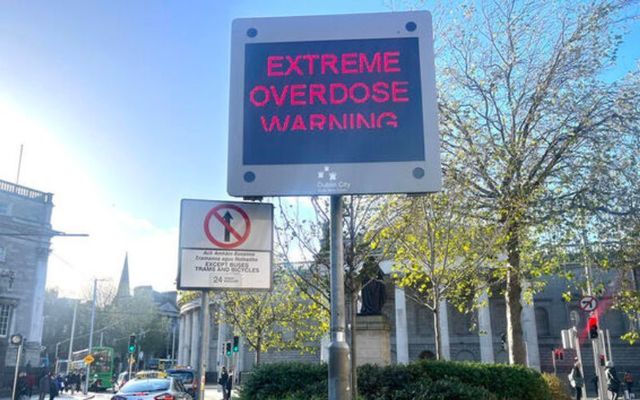Ireland's Health Service Executive (HSE) updated the status of its warning regarding heroin overdose clusters in the Dublin Region on Friday, November 10.
The HSE issued a risk communication on Thursday, November 9, to people who use heroin in the Dublin region following a number of overdoses that day.
The HSE asked people on Thursday to avoid buying from new sources and avoid buying new batches of heroin as there was an "increased risk."
On Friday, the warning was upgraded to "extra risk" after analysis conducted by Forensic Science Ireland (FSI) confirmed that a trace amount of a Nitazene type substance, "a potent and dangerous synthetic opioid," had been identified in a brown powder associated with a Dublin overdose.
Extra risk: HSE has updated the status of its warning regarding heroin overdose clusters in the Dublin Region. Analysis conducted by Forensic Science Ireland (FSI) confirms trace amount of a nitazene type substance identified in brown powder associated with a Dublin overdose. pic.twitter.com/Ez8jy294vA
— HSE Ireland (@HSELive) November 10, 2023
“We are urging extreme caution following a sharp rise in the number of overdoses related to a powder being sold as heroin in the Dublin region," Professor Eamon Keenan, HSE National Clinical Lead, Addiction Services, said on Friday.
"Preliminary laboratory analysis has confirmed that recent overdoses may be caused by heroin mixed with nitazene, a potent and dangerous synthetic opioid. These pose a substantial risk of overdose, hospitalisation, and death.”
The HSE said on Friday that a total of 40 drug-related overdoses had been reported in the previous 36 hours.
On Sunday, that figure had risen to at least 54.
The HSE said on Friday that it was "reminding people to be extra careful, and avoid using new drugs, new batches of drugs or buying from new sources.
"It is safer not to use drugs at all.
"Your well-being is important, remember to look after yourself and care for others."
The HSE asked people who use drugs to follow harm reduction steps: be aware; avoid new batches of heroin; access Naloxene; avoid using alone and make a rescue plan; test the dose - start low and go very slow; avoid using other drugs; get medical help immediately if necessary.
Naloxone, which temporarily reverses the effects of opiate-type drugs like heroin, keeping the person alive until emergency services arrive, is available free from every Dublin Addiction Service.
Prof Keenan told the Irish Times on Monday that the number of overdoses “tailed off” over the weekend. He said it was “very difficult to say” whether any of the overdoses were fatal.
“The number on Sunday were no different than normal," Prof Keenan told the Irish Times.
"Our concern is that it [the rise] may not be an isolated incident.
“It might be happening on an ongoing basis into the future. People need to continue to follow the harm reduction advice.”
Prof Keenan further told the Irish Times that the presence of the synthetic opioid is a “new development” in Ireland.
“We hadn’t seen Nitazene before," he said. "It’s not new for Europe, it has been seen in Europe over the last number of years. The UK and Scotland have experienced a number of incidents this year.
"It was more a question of when, not if, it would come here.”




Comments